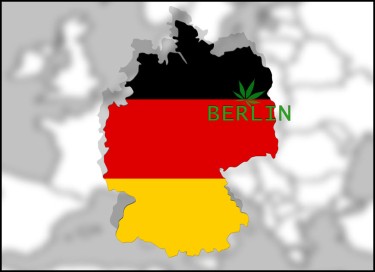
Is cannabis flower generic and basically all the same?
The importance of classifying cannabis is important on many fronts. First, there is the FDA’s classification as a narcotic with addiction potential. The other classification, whether it is a generic or non-generic, is currently causing confusion in Germany. The key players in this battle are insurers and there is much to argue about as rebates are at stake. Read on as we carefully examine all aspects of this confusion, what it entails, and what is the best possible outcome for the cannabis industry.
Before we delve into the ins and outs of this fight, we must first get a good overview of the situation of the cannabis industry in Germany. While the country has a stable medical marijuana program for patients in need, the country has yet to legalize recreational use. Lawmakers and political activists across the country have ignored calls for recreational cannabis reforms in various regions. Nonetheless, there is great optimism that the recreational market will soon be allowed to provide the necessary support and leverage for the medical market to thrive.
As previously mentioned, there is a legal medical marijuana market in Germany, but it is not without its flaws and problems. High on the list is the question of the classification of the natural herb, which is expected to have a huge impact on the industry as a whole. Cannabis in the county is classified as non-generic, which has created issues regarding purchasing and appropriate pricing of the product when needed. The alternative is to classify the product as generic, giving rise to proper discount purchase agreements and pricing.
While many would be easy to believe that this classification doesn’t have monstrous implications, the opposite is true. The classification of cannabis has not only offered solutions and clarifications, it has also raised numerous loopholes and unanswered questions. In turn, the questions and loopholes have affected both the availability of the natural product and its price. It has also impacted insurance reimbursement, as the parties involved now squabble over how best to address issues.
The current status quo of cannabis being classified as a non-generic drug in Germany only benefits those in the industry who are pushing for recreational law reform. While equally important, classification puts the medical marijuana side at a disadvantage if ignored. If this classification issue is not resolved, patients may be left with no choice but to source the flower illegally in gray markets.
Dronabinol remains the only cannabinoid drug on the market that is currently classified as generic. In the Narcotics Act, dronabinol is defined as a THC isolate that is passively diluted with an inactive oil. The product is derived from different varieties of cannabis flowers, but is still classified as a generic cannabinoid drug. This classification of dronabinol has not caused much controversy since it only contains one cannabinoid.
While dronabinol remains a good drug on the market, trends have shown that patients prefer natural cannabis flower over isolates. It is expected that this will be a major talking point in the classification debate, but so far it is not and should not be. It seems patients’ rights are being ignored in the classification debate as politics in Germany tries to get a foothold on the matter.
In order to understand this problem, we have to deal with the handling and characterization of cannabis in Germany. The classification of cannabis as a plant under German law is still somewhat complex, as some things are still unclear. Although this question of classification as a plant is much more a political question than a scientific one. Since 2017, various terms for the classification of cannabis flowers have been used by the medical and legal system in Germany, which are not yet conclusive.
The issue of these definitions is so problematic that patients can still be charged under the Narcotics Act for growing their cannabis. This is because they are presumed to have illegally accessed and abused a narcotic. The problems don’t stop there, as this also affects the pricing of cannabis and its availability. Patients without a health insurance license have to pay almost twice as much as health insurance patients in the pharmacy. Patients who fall under this category seemed to have no choice but to resort to black markets to purchase the products.
The first definition to consider is that cannabis flower is still considered a “narcotic”. This is independent of its source as it also includes those derived from hemp with a THC content of less than 0.02%. Certified EU-GMP cannabis flowers according to German law are also not considered finished medicinal products. Pharmacists must prepare and repackage the flowers received from the vendors. It is then classified as generic after repackaging. These definitions mean that manufacturers and manufacturers who are normally allowed to discount generic drugs when they are sold in bulk cannot.
The current situation is far from ideal and that is because those in power have chosen to leave it as it is. If the problems remain unsolved, they will keep producers and patients in Germany at loggerheads, and that is not good for the industry. As the industry tries to stay afloat by selling as much cannabis as possible, some of its patients continue to suffer. It is therefore important that appropriate changes are made as soon as possible to help cannabis patients get the most out of the industry.
GERMANY LEGALIZES CANNABIS, READ MORE..

GERMANY LEGALIZES RECREATIONAL CANNABIS, EUROPE CATCH UP NOW!

Post a comment: